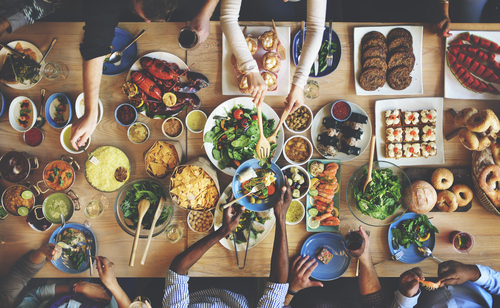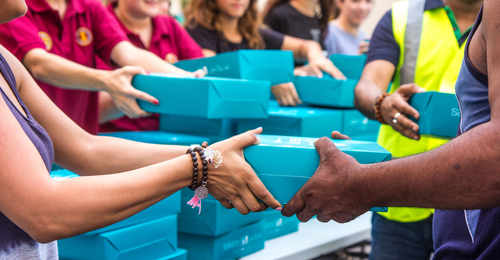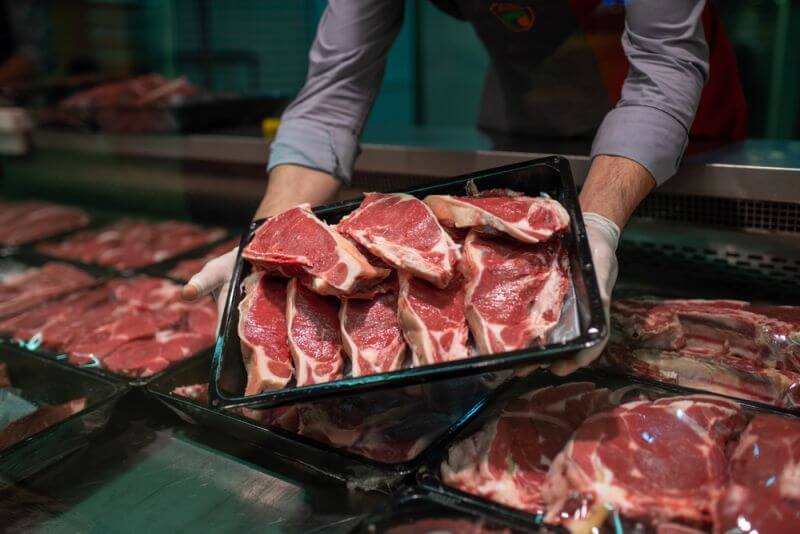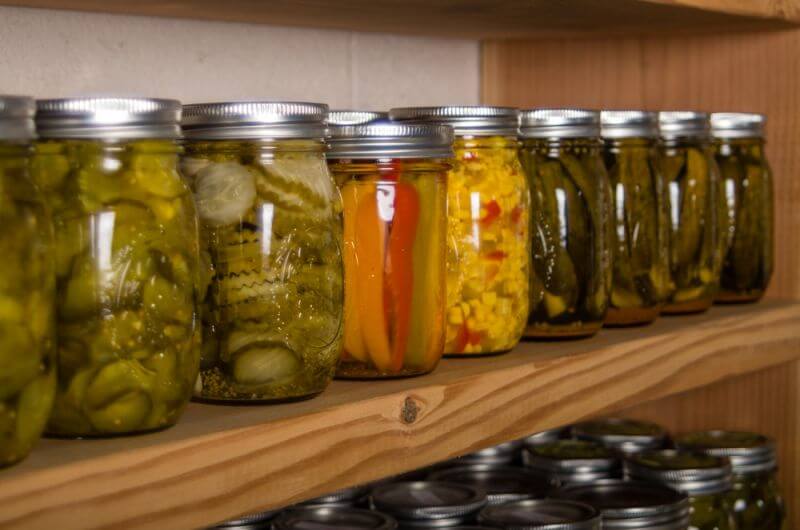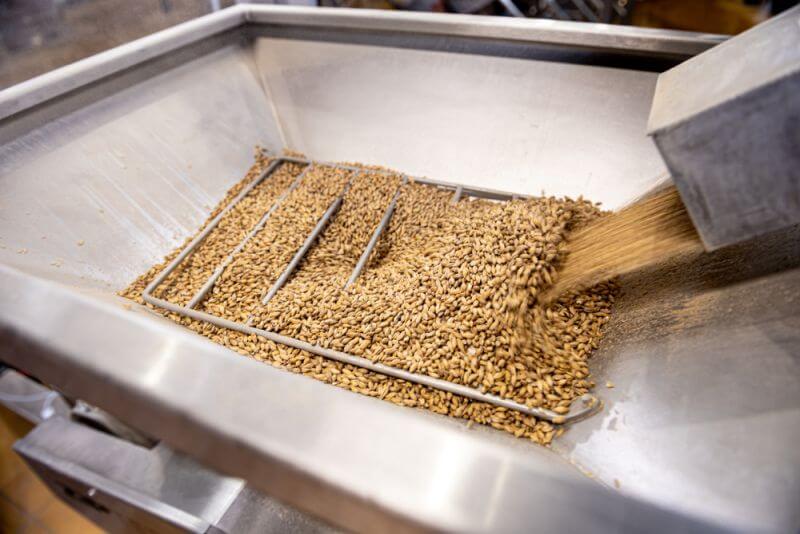No matter how you look at things, food storage, and acquiring proper food supplies will remain the main concern for us preppers.
We have the constant urge to stock up our pantries and figure out ways to cut down costs while doing so. We are forced to decide how most of our budget is divided, and we have to be smart about procuring food.
Buying in bulk is a method that can save a lot of money, and it helped many of us to reduce the stress of dealing with the food stockpile task. I always recommend this strategy to new preppers when they are asking about money-saving methods. Buying meat, produce, and dry goods in bulk is an effective method to cut expenses.
Not only will it make food shopping easier and less frequent, but it also has a hidden advantage. The foods you buy in bulk are often of higher quality than packaged supermarket items.
If you haven’t done this before, buying in bulk may be intimidating at first. In this article, I have gathered some key steps for those trying to buy in bulk on their own. You can do so by reaching out to your local farmers, and if budget may still be a problem, you could join a food-buying club to save even more.
Benefits of food-buying club members
Individuals and even families are now creating buying groups to merge their grocery lists and be able to purchase food in large quantities at low/affordable prices. They usually make one or two large orders each month, and they often rely on a single whole-seller.
This is a good tactic because if they buy everything from a single seller (toothpaste, soap, grains, etc.), they can save as much as 50 percent on their shopping lists. Not to mention that besides the savings you are making, you are also able to network with like-minded individuals.
To join such a club, you will need quite the preparation. You need to get a lot of jars, bins and all sorts of containers you can think of to store your portion of food. Also, you may need a large freezer in order to deposit large purchases of meat and other temperature-sensitive foods to prevent them from spoiling.
Another thing that needs to be specified is that some clubs will often require their members to chip in and help with various chores. For example, some may be required to grind fresh flours, while others will be asked to help with the packaging of goods.
On advantage of such clubs is that all members have a similar mentality and you can learn a lot of things from others. They share cooking habits and meal planning tips, but also let you know what you should buy in order to avoid getting food that your family may not eat. They advise you to try a small quantity at first before buying in bulk and keep track of what your family likes and what foods end up at the back of the pantry.
Joining a club
There are all sorts of food buying groups in North America, and one of the main sources to identify such groups is probably the staff from your local grocery stores. Most of them are aware of such clubs in the area and will help you find one nearby. The second most useful source for tracking such clubs is social media, and there are often people posting about their groups on social media channels.
However, if you didn’t have any luck finding such a group, you can always start your own group. Here are a few tips for doing so.
Recruiting members
For a food buying club to work properly, you need at least 15 to 20 members. This is a requirement because food distributors have a minimum order of five hundred dollars or more. Think of it like this, the more members you have in your group, the more savings you will be making. Not to mention that a large order will provide volume discounts, and you will reduce shipping costs.
To start getting members for your group, start close to home. Recruit your relatives, friends, and neighbors. Also, if you have a noticeable online presence in your local area, you can also start to recruit members from there. Some people I know have used flyers at their local supermarkets, and other places with good social traffic to pull in more members.
Picking out a vendor
When picking a vendor, you need to go with companies that don’t limit their sale to commercial accounts. Make sure the vendors are selling to buying clubs and get some tips from existing clubs. These vendors will also be able to give you merchants recommendations that have a long history in dealing with buying clubs.
I recommend buying local from producers in your area since this will not only assure fresh produce, but it will also improve the food system and support small/family businesses in your area. As a quick example, if your group will buy meat in large quantities, it will be a good way to build a trustworthy relationship with local farmers. When you buy beef and pork in bulk, you will notice substantial savings, especially in premium cuts.
Ordering strategy
Most orders are compiled online nowadays, and it’s the most convenient way to do so. You can use your credit card to place an order and schedule a delivery location and drop date from the comfort of your own home. There are even software developed by national distributors updated in real-time created specifically for bulk buying clubs.
Your club will require that one or two of its members handles the communication strategy. These are the people that will be sending reminders to others, placing orders, and also schedule the distribution of goods. Usually, these members are rewarded with a higher markdown for their work and dedication.
Since distributors won’t ship partial cases, the people handling the communication strategy will also have to organize the monthly meetings to decide on splits. You can save a lot of money on a 25-pound bag of rice, but most certainly your family will not eat such a large quantity of rice. If you don’t plan to store it for later use, you can divide the bag with at least one other member of the club.
Drop-off location requirements
This may pose a problem for some since you can’t have the goods delivered at your workplace or in front of your garage. Your club needs to have a secure drop-off location, and a person should be present to accept the items and verify that everything was delivered. There can be delivery mistakes or out of stock items and you need to check that your delivery matches the order list.
Think about the location having the proper storage space since such location may need to have refrigeration storage space. Without it, your ordering options will be limited.
The location where the items are delivered and stored should be acknowledged by all members since they will have to pick up the goods. Some may choose to implement a distribution route, but the bigger the club, the harder it will be to deliver the goods. To be on the safe side, everyone should be responsible for picking up their foods.
Distributing the good
Since the aim of a food-buying club is to get quality food at low prices, there will be the need to split the large quantities based on everyone’s needs. This requires having a few volunteers to open the bags, weigh the quantities, package, and label the content based on what everyone ordered.
You can either have permanent members doing this or even better, assign some by rotation. Everyone should take a fair turn, in my opinion. However, you chose to do this, make sure the people handling these chores are rewarded with bigger discounts since they will be doing a time-consuming job that needs a dedicated effort to be done properly.
If you have preppers in your group, this work becomes much easier since most of us have no problem getting larger bags and store them long-term at home.
Paying the bills
Every food-buying club needs an “accountant,” the person handling the splits, sales taxes, discounts, and the one making sure that everyone pays their share in time. Some clubs assign this job by rotation, but not everyone is cut out for this job. It can be challenging for some to calculate splits and establishing sale taxes division amongst members.
There is also free buying club software that can handle such tasks. Register for such a tool if you want to rotate this job. Not only will it offer transparency, but it will also help with the challenging math tasks.
Final words
In today’s America, the idea of buying in bulk is intriguing and challenging for some, but just until they get the hang of it. Once they understand how everything works and how much money they will save, they will spread the word and advertise such clubs.
If you don’t have a disposable income for your prepping plans, I recommend joining such a club, especially if you are concerned about the quality of food you provide to your family.





